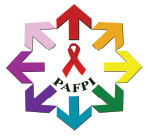PAFPI Conducted for the 1st Time Face-to-Face HIV Counseling to Testing (HCT) Training after Covid19 Pandemic Hit the Country in 2020
PAFPI conducted face-to-face HCT Training for the first time since the Covid-19 global health pandemic hit the country in early 2020. Due to the pandemic, all corporate and NGO operations and physical work contacts were suspended and limited to online work and meetings, including PAFPI’s HCT training. Now that Covid-19 is nearing its end and public health safety is assured by the Department of Health, public and private offices are able to resume normal office work. The DOH strongly encourages conducting HCT Training in person.
The HCT Training took place at Manila Grand Opera Hotel, located at 925 Doroteo Jose Street corner Rizal Avenue, Santa Cruz, Manila City, from April 15 to April 19, 2024. The training team consists of DOH Certified Master HIV Counselor – Ms. Jezamae Encabo and DOH Certified HIV Trainers – Dr. Nicole Dela Cruz and Uly Nicole Borres. They are responsible for conducting, facilitating, and endorsing trainees for inclusion in the roster of DOH Certified HIV Counselors. Fifteen (15) trainees successfully endorsed for DOH HCT Certification.
















The Importance of HCT Training
Face-to-Face HCT Training is a type of training that provides education and skills development for individuals who will be providing counseling and support services to people living with HIV or those at risk of HIV infection. This training is typically done in person through workshops, seminars, or other interactive sessions.
During HCT Training, participants learn about the basics of HIV/AIDS, the importance of counseling and support services in HIV prevention and treatment, communication techniques for discussing sensitive topics related to HIV, and strategies for promoting healthy behaviors and reducing risk.
The training includes role-playing exercises, case studies, and group discussions to help participants practice their counseling skills and gain confidence in supporting individuals affected by HIV. Trainees may also receive information on local resources, referral services, and best practices in HIV counseling and support.
Face-to-Face HCT Training is crucial for developing the knowledge, skills, and empathy needed to effectively empower individuals living with HIV and help prevent the spread of the virus in communities.
Training in face-to-face HIV counseling and testing (HCT) is extremely important for several reasons. Here’s why:
Accuracy and Consistency: Proper training ensures that counselors provide accurate and consistent information about HIV transmission, prevention, testing procedures, and treatment options. This consistency helps build trust between counselors and clients, leading to more effective counseling sessions. Reducing Stigma and Fear: Counselors who have received training are well-prepared to address sensitive subjects related to HIV/AIDS with compassion and understanding. This approach helps to lessen the negative judgment and fear that surrounds HIV testing. It also encourages individuals to seek testing and care without worrying about experiencing discrimination or rejection.
Informed Consent: Effective training ensures that counselors understand the significance of obtaining informed consent during HIV testing. They can explain the testing process, potential outcomes, and implications in a way that is clear and easy to comprehend. This empowers clients to make informed decisions regarding their health.
Linkage to Care: Trained counselors play a crucial role in connecting individuals who test positive for HIV to appropriate care and support services. They can provide information about treatment options, refer them to healthcare providers, and connect them with support networks for people living with HIV/AIDS (PLWHA). This ensures that clients receive the care they need to effectively manage their condition.
Community Engagement: Training programs for HIV counseling and testing often involve activities aimed at engaging the community. These activities help raise awareness about the importance of testing and work to remove the stigma surrounding HIV/AIDS within the community. Trained counselors can become advocates for HIV prevention and treatment, encouraging healthy behaviors and reducing the transmission of the virus.
Quality Assurance: Training programs typically include measures to ensure that counselors adhere to established protocols and ethical standards. This helps to maintain the quality and reliability of HIV testing services, ensuring accurate results and appropriate follow-up care for clients.
Monitoring and Evaluation: Trained counselors contribute to monitoring and evaluation efforts by accurately documenting client interactions, testing outcomes, and referrals. This data is crucial for assessing the effectiveness of HIV testing programs, identifying areas for improvement, and informing future interventions.
In summary, training in face-to-face HIV counseling and testing is crucial for providing high-quality, client-centered services that promote HIV prevention, testing, and linkage to care. It enables counselors to address the unique needs and concerns of clients, helps establish trust and rapport, and supports broader efforts to control the spread of HIV/AIDS.
